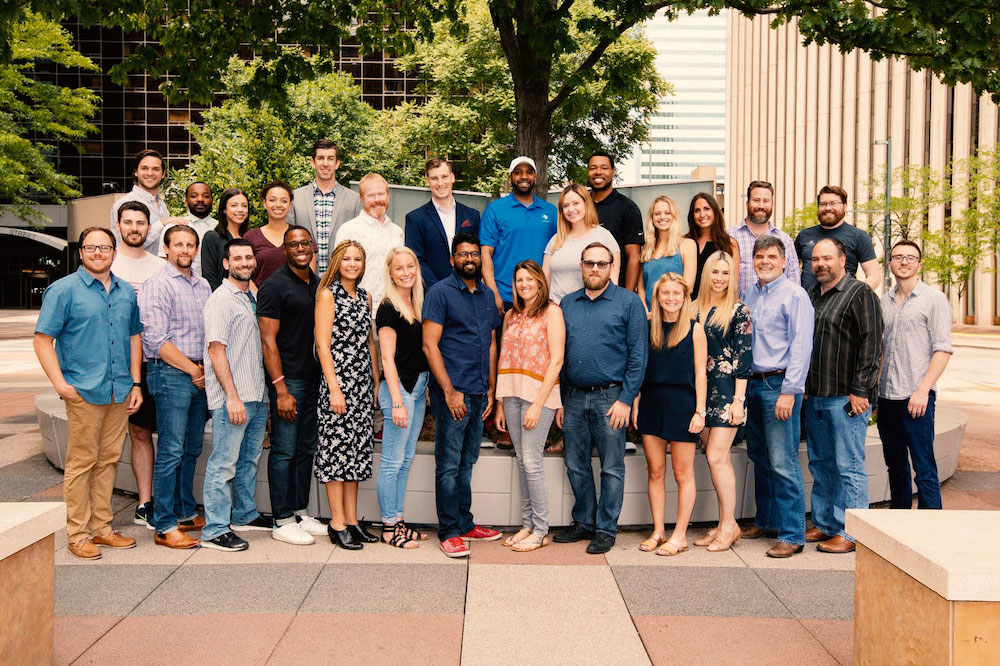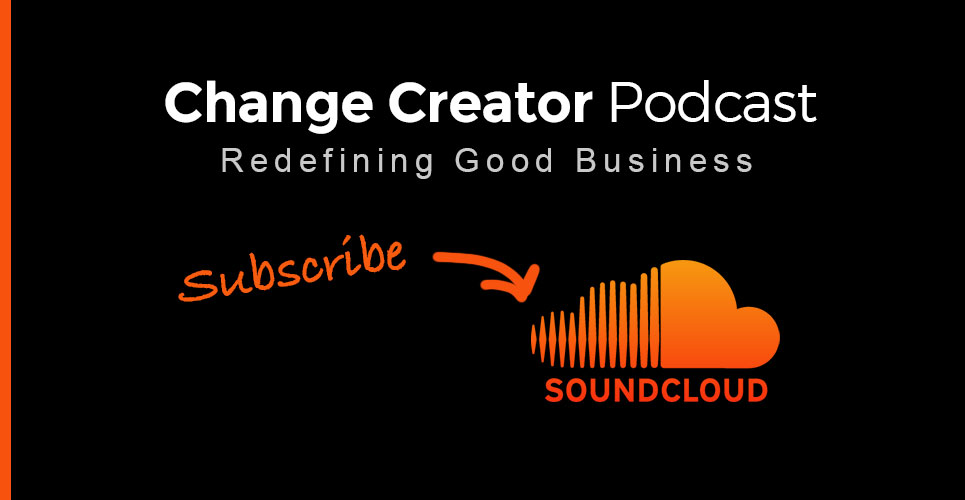
This article was originally published in Change Creator Magazine issue 19.
For a great entrepreneurial idea to grow into a successful and thriving business, there is often a window of opportunity that is momentarily open. Successful business people know how to take advantage of that window of opportunity even when traditional business wisdom advises the opposite.
Vangst Staffing is today the number one recruiting resource for the rapidly growing cannabis industry across the United States and Canada. Since originally launching in 2015, they have connected around 5,500 candidates with professional employment opportunities in the rapidly emerging cannabis industry, and will most likely participate in helping to staff a large part of the quarter million jobs that are expected to materialize in this industry within the coming years.
The resounding success of Vangst, however, didn’t happen overnight. Rather, it was the brainchild of a young entrepreneur who believed in her business proposal even when the emerging industry still was in its infant stages.
The growth of Vangst from a one-person startup with zero clients to the number one recruiting agency in one of the fastest growing industries on the continent offers several helpful business insights, strategies, and ideas that other entrepreneurs would do well to replicate.
Identifying Unmet Business Opportunities
In 2015, the cannabis industry was still stigmatized and branded as a fringe industry dominated by a select group of people on the margins of society. Karson Humiston, the founder and CEO of Vangst mentions that when the company first started, almost no professional from the pharmaceutical industry would have considered a career within the world of cannabis. Three years later, however, Vangst is successfully connecting professional pharmacists and other professionals with high paying jobs in this industry.
What changed?
As state legislatures across the country began to legalize both medical and recreational cannabis, Karson was able to foresee the growth opportunities in this market. While others scorned the emerging cannabis industry as nothing more than a few marihuana farms and dispensary shops, she was able to anticipate the market.
As cannabis slowly became legalized across large portions of the continent, acceptance would grow and people would discover the benefits associated with this previously stigmatized plant. Karson understood that past prejudice would make it hard for professionals across the industry to discover and take advantage of this emerging job market. Similarly, companies that operated within the cannabis market would also find it difficult to find quality employees for their growing businesses.
Thus, Karson´s idea of creating a staffing agency and recruiting resource specific to the cannabis industry filled a need in an emerging market that most people continued to avoid because of inaccurate perceptions about the industry. Today, lots of qualified individuals from a wide range of professions are looking at the cannabis industry as a potential career option. There are jobs available for botanists, executive assistants, chemical engineers, and dispensary store managers, to name just a few of the potential job openings. Vangst was able to get a head start on the industry and firmly establish a quality business service for both employers and potential employees in this industry.
Persistence and Tenacity
Identifying emergent markets is one part of the Vangst´s success story. However, it took a healthy dose of persistence and tenacity to see the business idea through to success. After going to an industry tradeshow and identifying the possibility for a cannabis industry staffing agency, Karson spent well over a year waiting for her first client. “I remember thinking that every day I would wake up and think that today is the day I´m going to get my first client,” Karson mentions.
She followed up with companies that she met at the tradeshow, relentlessly called the contacts on her list, organized meetings with these companies, and was mostly rejected. Finally, one cannabis company offered her an opportunity, mostly because they were impressed that she had continued to ask for a meeting after several prior rejections. Karson mentions that “somehow I was able to find them their accountant…and they referred me to some additional cannabis companies.
When you can get that word of mouth referral from a big brand…that is really what it took to go from zero clients to several clients.” Karson believes that entrepreneurship is about believing in a business idea and sticking with the plan.
“You have to believe in what you´re doing…and I was not willing to give up until I got a client. Setting goals and going after them…is the big differentiator between companies that can get off the ground and companies that inevitably fail,” she offers. “It comes down to giving up.”
Direct Outreach
While Vangst did build a small website that explained the services they offered, they didn’t simply sit back and wait for the phone to start ringing. Rather, Karson and the first members of her team would incessantly make phone calls to leading companies in the cannabis industry. They believed in their business proposal and wanted to contact directly people who mattered within the industry.
Amanda Guerrero, business development manager at Vangst, was one of the first employees that Karson hired. Amanda wanted to explore the Los Angeles cannabis market and was given free reign by Karson to try and create a new market on the west coast.
She would spend lots of time at networking events and developing strong relationships with people in the industry. Amanda shares that getting out there and spending lots of time in front of people who matter in the industry was essential for business growth.
“Being able to stick your hand out…takes a lot of confidence and grit, and it´s not a very comfortable position to be in…if your personality doesn’t lend itself to being outgoing.”
Instead of just sitting behind the phone, the hustle involved in going to conferences, setting up meetings, and introducing yourself to complete strangers was fundamental for strong business development. “The more that you introduce yourself to strangers the fewer strangers you’re going to have when you go back to visit,” Amanda adds.
As Vangst looks to expand into the Canadian market, Amanda has spent much time going to Toronto and other Canadian cities in search of companies and allies that will be willing to work with Vangst.
 A Focus on Relationships
A Focus on Relationships
Vangst believes that relationship building has been the key to their success. Early on, the purpose of spending long hours at networking events wasn’t to find short-term success, but rather to build long-term business relationships.
Amanda´s time spent trying to expand Vangst´s influence in Los Angeles did not yield any immediate fruits. The market wasn’t ready and legal barriers still existed. However, the time and energy Amanda spent developing relationships with key players in the local cannabis industries planted seeds that later blossomed into long-term business relationships once the market did emerge.
When the company was just beginning, Karson mentions that Vangst was essentially offering a free service to their clients just to get their foot in the door. The extremely low entry offer was a business strategy aimed at building trust and letting their clients discover the quality of the service that they provided.
As Vangst has grown from a one-person startup to a company with over 50 employees working in markets across the continent, Karson wanted to make sure that all employees shared the main value of focusing on relationships with clients and maintaining the individualized component of the business service they offered. Making sure that employees´ goals are aligned with the long-term vision of the company is a fundamental strategy to help the company maintain one of the original elements that helped it succeed.
Business Insights and Strategies to Learn From Vangst Vangst
Vangst has almost singlehandedly built a community of entrepreneurial people that want to get involved in the emerging cannabis industry. Over 160,000 people are currently employed full time in the cannabis industry and that number is expected to triple by 2020. Their sound business strategy and philosophy has made Vangst poised to continue to be a major player as the cannabis industry continues to grow. Other entrepreneurs would do well to learn from Vangst´s experience, namely:
- Identifying unmet business opportunities in an emerging (though overlooked) market
- Persistence and tenacity even when the market appears to be non-responsive
- Direct outreach towards major players in the industry
- A focus on building relationships with clients








